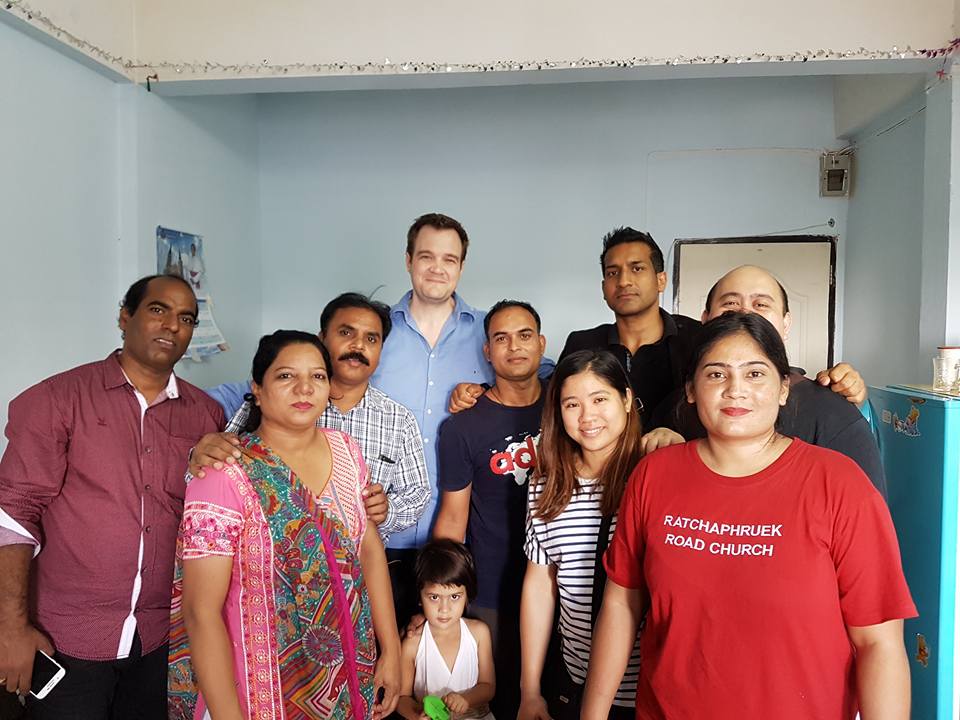The current pathways for Pakistani Christian Asylum Seekers do not work. They are paths where people are often exploited by criminals and lead mostly to
further suffering. The current pathways flood countries who are not equipped to manage large numbers of asylum seekers. These countries are often tolerant
of small numbers of asylum seekers at first, as numbers increase they become more hostile until eventually they are actively arresting Asylum Seekers.
This has prompted the BPCA to ask “Where in the world is it safe for Christian Asylum Seekers?”
Recently the BPCA has been joined by a team of volunteer researchers from Australia who are exploring the question “Where in the world is it safe for Christian Asylum Seekers to go?”.Angus
Skeoch leads a volunteer team consisting of Christina Skeoch, James Carlos, Karissa De Leon. He said: “The research proposal being developed aims to develop a long term strategy for Christian asylum seekers, a strategy that provides sanctuary from persecution whilst asylum seekers undertake the refugee application process.”
During August for 14 days BPCA Chairman Mr Chowdhry has had the privilege of visiting a total of 8 churches, meeting with a total of 16 Pastors and
over 400 hundred asylum seekers in Thailand and Malaysia. During these visits many asylum seekers responded to the long term strategic Sanctuary question,
with careful consideration and prayerful reflection. We asked where such a place would be outside their homeland and they all unanimously stated in
the Christian west, which they felt were the only countries where their religious belief and practices would be tolerated, and where the existing culture
would enable them to assimilate without causing conflict.

Most persecuted asylum seekers in Thailand and Malaysia appear to be well educated and to have an excess of professional experience. Many expressed
that despite their suitability for asylum in the west and clear employability, that their plight was being ignored by western nations. When asked for
their perceptions of why western nations might not be open Christian refugees responses included: the inability of Christians to enter shared faith
UNHCR camps due to threats, bullying and intimidation (several asylum seekers spoke of attempts to enter camps in other nations). They spoke of attempts
by the west to appease Muslims based on an historical guilt founded on atrocities enacted during medieval crusades and fear of being labelled Islamophobic.
Victims also described financial paucity and an inability to obtain visa travel to western nations due to a passport that provides limited destination
options and restrictive protocols for applications. Cumulatively, they believed that this had created a huge disparity in asylum rates between Christians
and Muslims. This disenfranchisement felt to them like a deep betrayal of the UN Conventions for Human Rights and Asylum, especially from Christian
brothers and sisters, who they felt were not clamouring for justice for them. The BPCA support the development of a proposal to supportive politicians
calling for a sanctuary for Christian Refugees. This proposal will be co-developed with expert partners and will utilise video based narratives and
questions from asylum seekers.
Points for consideration will include:
● Security from re-persecution
● Access to UNHCR processing
● Long-term sustainability of a sanctuary location
● Families who cannot meet the requirements of the current refugee process and cannot return home.
● Viability of alternate methods of supported migration (like the Church sponsored programs in Canada) or utilisation of economic migration.
● Access to healthcare and work during this time
● Primary and Secondary Education for children who are stuck for an average of 5 years without education for the duration of the refugee application process.
● Access to recognised university entrance testing was a concern for parents.
● Online university options as no options were available for stateless young people was a concern for young adults, many from families with tertiary educated parents.
● Consideration for children orphaned during the process.
Wilson Chowdhry, Chairman of the British Pakistani Christian Association, said:
“Whilst many potential solutions were discussed the BPCA is passionate about long term solutions. God’s love flows through his Christian people into the world we want to empower the persecuted in Pakistan and bring about peaceful change. For those who must flee, the path of asylum seeking must be functional. We will work with partners and other asylum groups to call for a Sanctuary for our Christian Asylum seeker brothers and sisters.“







